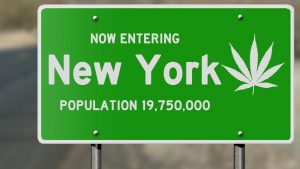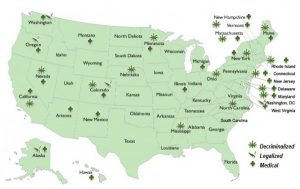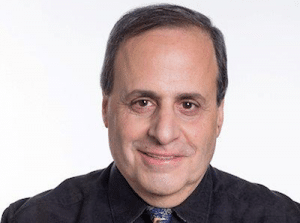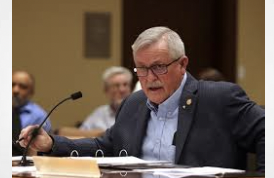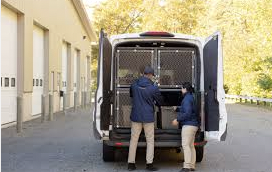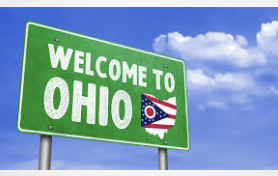If you wish to re-publish this story please do so with following accreditation
AUTHOR: Heather Allman
PUBLISHER: CANNABIS LAW REPORT
Cannabis Operators, Insiders, and Experts Discuss New York’s Cannabis Legalization, Equity Plans, Revenue Possibilities, and Future National Market Potential
New York has reached a deal to legalize marijuana. After years of impasse, New York just became the 16th state in the country to allow the recreational use of the drug by adults starting next year.
TOPIC
Please discuss the news of this 16th state to legalize: New York
Kim Stuck, Founder & CEO of Allay Consulting:
The legalization of cannabis in New York is outstanding. This is a trendsetting state that tends to do things its own way, so it will be interesting to see how it goes about legalizing from a compliance standpoint. Approximately 19.5 million people live in New York, and it’s known for strict public health and worker safety regulations, and I don’t think that will change with the introduction of the adult-use market.
Mehran Moghaddam, Founder & CEO of Kurvana:
While I don’t expect licensed sales to open for at least the next 12 months, it’s definitely exciting to see the second largest market in the U.S. open up for legal cannabis sales. I’m specifically looking forward to seeing how this will impact the stigma around cannabis as a whole.
While it will likely take anywhere from 10 to 14 months for New York to establish regulations and set up the guidelines for licenses and production, it’s definitely exciting to see what will likely be the second largest market in the U.S. open up for legal cannabis sales. I’m specifically looking forward to seeing how this will impact the stigma around cannabis as a whole
Greg Huffaker III, J.D., Director of Client Services, Canna Advisors:
It’s fantastic! The regulators have a lot of power here, as there are so many details left up to regulation, and it is important that they draft them quickly and well. They could do so by asking for input from the existing regulated cannabis industry, rather than existing states, as there is not currently an example state to look at, in our opinion. They should also avoid using their existing medical program as a framework, as it has been beset by growth issues, among others.

Lori Green, Partner Co-Leader, M&A and Corporate Transactions Team and Co-Leader of Cannabis Practice at Nixon Peabody
Lori Green, Partner Co-Leader, M&A and Corporate Transactions Team and Co-Leader, Cannabis Practice at Nixon Peabody:
On March 31, 2021, New York Governor Andrew M. Cuomo signed legislation (S.854-A/A.1248-A) legalizing adult-use cannabis, making New York the 15th state to legalize recreational use of cannabis.
The legislation establishes the Office of Cannabis Management to implement a comprehensive regulatory framework that covers medical, adult-use of cannabis and cannabinoid hemp. The legislation also expands New York State’s existing medical marijuana and cannabinoid hemp programs.
It requires licensing for marijuana cultivators, processors, distributors, dispensaries, consumption sites, cooperatives, deliverers, nurseries, and microbusinesses, and creates a social and economic equity program to assist individuals disproportionately affected by past cannabis enforcement who want to participate in the industry. In addition, the legislation provides for the automatic expungement of arrests and convictions for all activities that are legal under the new law.
Claire Moloney, Regional Director LeafLink East Coast:
New York’s recent cannabis legalization means big things. By opening the industry to a diverse set of communities and businesses, New York’s cannabis market is primed for economic growth along with fairer prices, more product variety, and higher tax revenue.
As a New York City based cannabis tech company, we are thrilled by the further expansion of legalization across the East Coast. Paired together, New York and New Jersey will make up a cannabis market that rivals California. New York is projected to generate over $1 billion in retail sales revenue during the first year of adult-use sales, and the industry is expected to bring over 60,000 new jobs to the state.
Already, the entrepreneurial energy around the industry is palpable, and based on our estimates, once New York reaches maturity it could have over 2,000 retailer licenses and more than 4,000 cultivator and processor licenses. New York is likely to become a model for the creation of other adult-use markets across the country, especially when it comes to social equity.
Rich Batenburg Jr., Chairman of Clear Cannabis Inc. and CEO of Cliintel Capital Management Group:
This news is fabulous for many reasons. I have always predicted that the bigger moves we see New Jersey make towards legalizing cannabis, the faster New York will fall into line. On a state level, New York will benefit from the additional tax dollars, the plethora of new jobs and the legal competition that will keep money out of the illicit market.
This news is also great for the entire U.S. cannabis industry. People have pointed out states like California and Colorado are leading the cannabis industry, but New York will be on another level. Assuming the SAFE Banking Act passes, which I do expect will happen, New York will have the ability to pour jet fuel in the tank of an already booming industry. New York City is home to the biggest investment banks, and once there is some sort of harmony between state and federal regulators, the banks will be ready to move quickly to get involved with more capital than most companies will know what to do with.
Dustin Robinson, Founding Partner of Mr. Cannabis Law and Co-Founder of Mr. Psychedelic Law:
New York’s long-awaited passing of legalization of cannabis has created a lot of excitement and has brought us one step closer to national legalization. With the need for tax revenue and job creation, more states are looking towards legalization of marijuana to be the solution. The entire Northeast is poised to become one of the fastest growing marijuana regions in the country.
Charles V. Pyfrom, CMO of CannGen Insurance Services:
CannGen has a meaningful market share of the New York medicinal market and is ready to support the additional cannabis businesses once recreational operators open their doors.
As a leading provider of insurance products specifically meant for this growing industry, coupled with the ability to entertain risks in all legal state markets, we are well-positioned to jump into any state’s new cannabis market, including New York’s, and provide both plant-touching and ancillary businesses with a one-stop-shop for all of their insurance needs. We expect that one of the first things that New York cannabis business owners will seek out will be insurance coverage.
Ryan Hale, Partner and CSO at Operational Security Solutions:
We applaud the New York State Legislature for voting to legalize recreational cannabis sales for adults over the age of 21. This significant new milestone for the industry will bring hundreds of millions of tax dollars into the coffers of the Empire State, increase access to safe and high-quality cannabis for New Yorkers and further solidifies that legal cannabis is here to stay on the East Coast. OSS looks forward to continuing to support New York and the East Coast cannabis markets.
Mike Colavita, Co-Owner of Fat Buddha Glass:
New York becoming the 16th state to legalize recreational marijuana is historic! First, it is a step that will correct an issue that has hit New York extremely hard with many people facing harsh punishment for cannabis use. New York also has a provision that allows cannabis to be smoked in public including on sidewalks.
This is a first with any state that has legalized cannabis and sets a tone for future restrictions to be relaxed or eliminated altogether.
Noah Fishman, Co-Owner & Founder of Zenbarn Farms:
New York’s move to legalize is welcomed and an important boost as we move toward a national end to prohibition. New York as a global financial center will hopefully push for more reforms in banking, IRS, and other states to get on board.
Kimberly K. Harding, Partner at Nixon Peabody:
Effective immediately, New York’s new law legalizing recreational marijuana use prohibits employers from refusing to hire, disciplining, discharging, or otherwise taking adverse action against an employee for the recreational use of marijuana.
Specifically, the bill amends Section 201-d of the New York Labor Law, which prohibits employers from discriminating against employees engaging in certain recreational activities outside of work hours (originally introduced to protect employees who smoke tobacco from discrimination in the workplace), to specifically include protections for employees engaging in recreational marijuana use in accordance with state law.
However, employers are still permitted to discipline or discharge employees who use or possess marijuana either on site or during work hours.
The bill is not intended to limit the authority of any employer to enact and enforce policies pertaining to marijuana in the workplace and further delineates three exceptions for which an employer would not be in violation of the new law:
- The employer’s actions were required by state or federal statute, regulation, ordinance, or other state or federal governmental mandate;
- The employee is impaired by the use of cannabis, meaning the employee manifests specific articulable symptoms while working that decrease or lessen the employee’s performance of the duties or tasks of the employee’s job position, or such specific articulable symptoms interfere with an employer’s obligation to provide a safe and health workplace, free from recognized hazards, as required by state and federal occupational safety and health law; or
- The employer’s actions would require such employer to commit any act that would cause the employer to be in violation of federal law or would result in the loss of a federal contract or federal funding.
While the bill effectively puts recreational marijuana use in the same category as off-the-clock alcohol and tobacco use by employees, the application of these exceptions remains unclear.
Specifically, it is difficult to ascertain what will constitute “specific articulable symptoms” of impairment, particularly in the absence (to our knowledge) of any reliable, real-time testing mechanism for marijuana currently available to employers (such as a breathalyzer for alcohol impairment).
For now, employers should review their pre-employment drug screening processes to ensure that marijuana use is no longer disqualifying and consult with counsel to understand their obligations under state law, particularly as they relate to the implementation of existing or modified substance abuse policies in the workplace.
TOPIC
How this will bring in money from tax revenue?
Kim Stuck: All recreational cannabis in New York will have a 13% sales tax, where 9% will go to New York State and 4% will go to the county or town where the dispensary is located. This is a higher rate than other states, but everything in New York is relatively expensive. Like many other states, local municipalities get a financial incentive for allowing dispensaries in their county.
The main difference with New York’s cannabis tax structure is the ad valorem tax—a wholesale tax on the dry weight of cannabis. This is a new way of taxing that is unlike any other state—and while it may be burdensome initially, the hope is that once supply isn’t as limited, this burden will subside quite a bit. It’s also a race to see who will go to market first—New Jersey or New York.
Whichever state gets to the finish line first will see a considerable boost to their sales tax revenue in the interim, prior to the other state’s launch.
Mehran Moghaddam: From what we have seen in California and Colorado, the economic impact of this will be enormous. Last year, Colorado had a total tax revenue of about $387.5 million from cannabis, and California had around $306.7 million, which is a huge jump from 2019’s $170.7 million.
A lot of states are putting this money back into their communities and their people, which has been great to see. I believe Colorado specifically puts some of the tax money made from cannabis into different social programs and their schools.
I definitely think using this tax money in a positive way can have a big impact on decreasing the stigma behind cannabis as well.
Greg Huffaker: Lots of New Yorkers are purchasing cannabis every day, they just aren’t paying NY taxes on it. Once dispensaries open, this changes. Moreover, drug dealers don’t pay payroll taxes, regulated cannabis companies do. Beyond that, new businesses—cannabis included—mean increased economic activity, which means increased tax revenue on building supplies, labor, and ancillary support. Studies show that a cannabis business moving into a distressed neighborhood increases surrounding property values, so more tax revenue there as well.
Lori Green: The legislation implements a two-tiered tax structure, one on distributors and one on retail sales. Distributors will be taxed based on the amount of THC in the product (versus the current weight-based tax on medical marijuana), with tax rates starting at 0.5 cents per milligram for cannabis flower and increasing to 3.0 cents per milligram for edibles. The retail level tax will be 13 percent in total, consisting of a 9 percent state excise tax and a 4 percent local excise tax.
Counties will receive 25 percent of the local excise tax and municipalities will receive 75 percent of it.
Cannabis taxes will be deposited in the New York state cannabis revenue fund. The fund will first be used to pay for the reasonable costs to administer the program and implement the law, and then will be split three ways:
- 40 percent to education
- 40 percent to the Community Grants Reinvestment Fund
- 20 percent to the Drug Treatment and Public Education Fund
Rich Batenburg Jr.: The beauty of legalizing cannabis, with regards to tax revenue, is that it quickly delivers on its promise. In my home state of Colorado, we have seen this tax money become an important part of the state’s economy, benefitting a plethora of programs including public education and infrastructure improvements. New York has a much larger population than our state, so once their program is up and running, you can only imagine the tax revenue it will have to dedicate to making improvements for the residents of New York.
As long as the regulators make sure the distribution of licenses is fair and equitable, which I have full confidence they will, New York will be able to make up for a lot of tax revenue lost due to the amount of people that have moved from Manhattan during the pandemic.
Gyula Kangiszer, President of RotaChrom North America:
Having served companies in the hemp and legal cannabis industry for many years in North America, we have seen many success stories in states like Colorado, Oregon, and California. There are state revenues not only from taxes on final retail product sales, but also related to cultivation and production equipment sales and use tax.
Additional state revenues are also generated by increased employment in the industry. Colorado, we have seen tax revenue go to important programs in the areas of education, health care, substance abuse prevention and treatment programs, law enforcement, and other areas.
Dustin Robinson: It will bring in tax revenues through the 13% tax. In my opinion, this tax rate is just too high. We’ve seen in states like California that high tax rates drive consumers to the black market. New York has a thriving black market and the legal market is going to have trouble competing with the black market if the tax rate doesn’t get reduced.
Mike Colavita: New York will be able to generate tax revenue in multiple ways. First, NY is expanding their medical cannabis licensing and taxation fees of providers & Secondly, by applying a 9% tax with a variation based on THC level that the end-user will pay at purchase.
Noah Fishman: Tax on cannabis will be a powerful source of revenue to support state budgets and also in the case of New York repair hard done from the drug war.
Lisa Tollner, Co-Founder & CEO of Sensi Products:
Taking from lessons learned in California there will be billions of dollars of tax revenue generated for the state of New York and as a financial hub this will have wide-ranging positive impacts.
TOPIC
How this would help with the creation of new jobs?
Kim Stuck: Legalizing cannabis will generate new jobs and could help pull the economy out of the recession caused by COVID-19. New York State expects to eventually hit over $300 million per year in sales tax revenue, and experts predict the new industry could create approximately 60,000 new jobs in the next couple of years. Those numbers are exciting for a state that has been hit so hard by the pandemic. New York is cutting edge, and I am glad that legalization will enable people to start careers in a new and exciting industry.
Greg Huffaker: Cannabis jobs are good and plentiful. It takes a large staff to run an operation, and even entry-level positions are well paid. Owners want to avoid theft, and better pay is a great way to do so. In addition to the core functions, there are jobs in security, sanitation, and office support, to name a few. One of the best arguments you can make for cannabis being good for the job market is the hatred that comes out of the restaurant ownership cohort—they struggle to find a dishwasher willing to work at their low rates!
Mehran Moghaddam: There’s an endless amount of job opportunities with cannabis, and I think this legalization has come at the perfect time with the impact that COVID-19 has had on our economy and people’s jobs. Apart from dispensaries and their employees, there’s the creative marketing around brands, delivery services, research, the science behind cultivation, the legal aspect of regulations….
The way I see it, there’s an area of interest for nearly everyone to be found in cannabis, and I know it has created thousands of jobs in the states that it has been legalized in already.
Lori Green: The development of an adult-use cannabis industry in New York State under this legislation has the potential to create significant economic opportunities for New Yorkers and the state, given the number of potential consumers expected to access the market in the state.
Projections for revenue from sales are estimated to exceed $1 billion in 2023 and $4 billion in 2027. And projections for tax revenues range from $350 million in 2023 to over $1 billion in 2027. Estimates for new jobs that will be created as a result of this legislation range from 30,000 to 60,000 in the near term to 80,000 in the longer term.
New jobs and new revenue from this industry will not be limited to businesses that are required to be licensed by the Office of Cannabis Management.
In fact, there is an unlimited opportunity for ancillary businesses to participate in this new industry, including businesses related to digital media, digital apps, advertising, security, pest control, logistics, transportation, leasing or selling equipment, leasing or developing real estate, technology, intellectual property, and many others.
Tom Gavin, CEO of CannaTrac: Recreational cannabis in New York will definitely help with the creation of new jobs. I believe that anytime there is a disruptor like this, and obviously, I mean this in a good way, there is room for new employment. Although New York has had medical cannabis for a while, the addition of recreational cannabis will be an enormous upswing in business, as long as they don’t push the taxes through that they have been discussing.
Dustin Robinson: Since the New York bill has passed, my phone has been ringing non-stop with New Yorkers interested in becoming a part of the legal market. As long as the black market is kept at bay, the impact on job creation will be tremendous. Not only will we see the proliferation of plant-touching businesses, but we will also see the proliferation of ancillary businesses.
Mike Colavita: With legalization comes more business opportunities for both small and large businesses which means there will be many new jobs created to fill the demand. You’ll see everything from growers, to processors to budtenders but also in ancillary items like pipe shops.
Noah Fishman: There are innumerous jobs that will be created in and around the cannabis industry from growing and retail to delivery services, lab and science jobs, technology, security, construction, and many many more! In addition, we will see opportunities in hospitality and tourism.
TOPIC
What this means for marijuana legalization on a more national level?
Kim Stuck: Since New York is the country’s biggest city by population, I see its decision to legalize as another key step towards national legalization.Every year, more states are deciding to legalize, and every time it happens, we move closer to ending the federal prohibition on cannabis.
This, in turn, helps establish more consistent regulations across the cannabis industry, and moves the needle closer to abolishing 280E and granting proper banking and payment processing access to cannabis companies.
New York’s legalization is further proof that the cannabis industry isn’t going anywhere and is instead thriving and making people’s lives better. It is an exciting time in our country, and opportunity within the cannabis industry is endless.
Lori Green: Many other states are expected to legalize the recreational use of marijuana this year and we expect that this trend will continue until virtually all states have followed suit, unless cannabis is removed as a Schedule 1 drug under the Controlled Substances Act.
As more and more states legalize cannabis, there will be increasing pressure on our federal government to legalize cannabis at the federal level, which, among many other things, will enable legitimate cannabis businesses and their service providers, investors and lenders to conduct business with them without the risk of violating federal laws.
Legalization of cannabis at the federal level will also assist in limiting the illicit cannabis market that exists today in all states, which puts at risk the health and safety of all who access that market.
Will Kleidon, CEO of Ojai Energetics:.With New York and now New Mexico we are seeing the critical mass of the inevitable which is national legalization. We will likely see the federal organizations punt on regulation to the states as long as they can. They will monitor states and select policies that work in the legal patchwork of state regulation.
The best forward look into the cannabis industry post federal legalization is the alcohol industry. Big alcohol operators who are now efficient in a commodity market with high regulation will be best suited for cannabis.
Distributors will likely command market control as is the case with Alcohol. Companies with patents and big brands will be the long term winners.
Mehran Moghaddam: As far as what this could mean for cannabis legalization on a national level, I think the more states that individually legalize it, the closer we become to cannabis becoming federally legal, especially with the new administration in place. It’s my hope that education will come with the legalizations, so that more people will know about the plant’s health benefits, and the stigma around cannabis as a whole will begin to dissolve further.
Rich Batenburg Jr.: This is a huge deal for the prospect of national cannabis legalization. The only other state that could pass legalization measures where it would have a similar national impact would be Texas, and that is still debatably less impactful than New York.
On a national level, this movement is done by the masses, and legislators aim to represent their constituents. The influence New York has over the country will contribute to the media and politicians opening up and becoming more cannabis friendly. New York State is home to one of the largest cities in the world, and passing legalization measures is a sign to federal legislators that this is what the people want.
This accelerates the process for establishing a national, federally-legal cannabis industry and sets the stage for the U.S. to become the global leader in cannabis.
Gyula Kangiszer: I have worked for more than 20 years in professional services with Fortune 100 companies. I am happy to share that the existing and new entrants in this space are becoming more and more sophisticated, the change is apparent over the past couple years. They have built robust business plans detailing investment requirements and operational considerations.
It is great to see that many of them define their purpose to benefit the community or in the interest of the greater good not only their investors. As states like New York come online, it will only bode well for the rest of the country
Tom Gavin: Recreational legalization in New York should help show skeptical states the way. However, I don’t think that you will have an overnight change. Changes in the perception of total legalization will play out over time.
Legislators will want to research the pitfalls and how to proactively combat them. I also think states will want to see how much they can tax before people begin getting pushed back to the black market, which as we all know is currently enormous in New York.
Dustin Robinson: With New York becoming the 16th state to legalize recreational marijuana, we have reached a state of critical mass where national legalization is an inevitability. We are going to continue to see more states legalizing recreational marijuana, which will ultimately lead to federal legal reform.
Mike Colavita: With every new state that legalizes cannabis, we’re that much closer to federal legalization but also with New York’s unique provision of public consumption being allowed that will be a guide for future law changes across the country.
Noah Fishman: New York is likely the tipping point that will push us toward national-level legalization.
TOPIC
Here at CLR, we were a little surprised somebody didn’t try and slip in a THC control amendment. Do you think that is already a spent argument, or is it something that we might see further down the line?
Greg Huffaker: There just aren’t that many passionate cannabis opponents left, and for good reason. Though THC caps are often bandied around, few legislators—wisely—bother to really horse trade to get it in.
As a practical matter, it is humorously dumb. There are a variety of THC concentrations in a regulated market because consumers are interested in different things, high THC included. If there’s a market limitation on THC, one can easily increase the THC content with things already in your home, unfortunately doing so is dangerous.
The way to avoid that danger? Regulate the production of those products in a commercial facility, so people don’t have to endanger themselves.
TOPIC
We have already seen a domino effect with the New York legislation speeding up decisions in states as far apart as Rhode Island & New Mexico. Do you think it will have an effect in Washington DC, with Schumer already ramping up the language?
Nathaniel Gurien, CEO of Fincann: NY legalization of cannabis and as the financial capital of the world would put pressure on legislators to push for the passage of the SAFE Banking Act and more importantly, federal legalization, which may not happen until 2023.
However, legislators should not be focusing on the SAFE Banking Act, but rather implementing changes to the 280 tax law, which prohibits cannabis businesses from deducting business expenses and pushing for more medical research on cannabis.
Greg Huffaker: Every state helps. That said, the federal government has got a lot of problems on their mind, and cannabis legalization is not often ending up on that list.
Another issue with Congress is that they need more education on what is a good idea or not for cannabis. They would rather dip a toe in the legalization pool then jump in, without realizing that something like reschedulization would be a huge additional problem for the industry, not a help.
Descheduling is the only sensical solution, but many layers of uneducated hesitancy/opposition make it unlikely in the near future. Now all that said, we think a banking fix and/or 280E elimination may happen soon, and both would be quite beneficial.
TOPIC
The NY legislation talks a lot about equity. How successful do you think the legislation will be in achieving a more level playing field, at both the production and retail ends of the industry?
Claire Moloney: New York’s recent cannabis legalization means big things, both for the state itself and for socially equitable cannabis reform across the country. The legislation, pioneered by Crystal Peoples-Stokes, the first woman and first Black Majority Leader of the New York State Assembly, will address racial injustice in cannabis head-on by setting a goal of 50% social equity applicants, reserving a seat on the OCM for a Chief Equity Officer, reducing fees for social equity license holders, and allocating funds to underrepresented groups.
As I mentioned earlier, by opening the industry to a diverse set of communities and businesses, New York’s cannabis market is primed for economic growth along with fairer prices, more product variety, and higher tax revenue.
Greg Huffaker: What we’ve seen so far is promising. The regulations, now being written, will have an enormous effect on whether NY delivers, however. This line of the law is huge: “A goal shall be established to award fifty percent of adult-use cannabis licenses” to four categories of people. What ‘goal’ ends up meaning in action will be a big deal. Additionally, one of those four categories is: individuals from “communities disproportionately impacted”—the qualifying criteria for this category has served as a special-interest backdoor in other states, so we’ll need to keep an eye on how that part of the regulations develop as well.
There are several other promising parts of the law that if executed well will be quite beneficial to helping to level the playing field.
In sum, we’re excited that NY will be the first state to get social equity right…but every other attempt has ended in disappointment, so stay tuned, I guess!
Nathaniel Gurien: Chasing cannabis licenses may be ‘fools gold’ especially for minority equity candidates once federal legalization permits every corner convenience store to sell pre-rolls. It might be wiser to apply current skills & experience combined with newly acquired skills & capital provided by equity programs to launch a niche business e.g., tourism, professional services, equipment, horticulture – the possibilities are endless, barriers to entry are low, and prospects for long-term prosperity are greater.
TOPIC
Do you think NY should also try to lead on sustainability issues in the cannabis sector?
Greg Huffaker: Well, somebody should! It’s not simple, though. Sustainability is often expensive. Every additional expense a regulatory scheme requires reduces the ability of social equity applicants to even compete for a license, so we caution against requiring sustainability as a qualifier for licensure. One strategy we keep pushing for is to incentivize operators towards sustainability through reduced regulatory burdens. Drafters of the regulations must also invite input from current operators on what kind of regulations harm sustainability.
For example, requiring clean, dry, child-resistant flower containers that staff must fill sounds great, but in reality, this is a huge waste generator, as a customer can’t bring in their glass jar to get a refill. Instead, they get a plastic container from the dispensary that gets poured into the glass container as soon as the customer gets home, then ends up in the trash —many municipalities specifically won’t take cannabis containers in their recycling stream…and plastic recycling is a bit of a sham anyway, but I digress.
James Eichner: Yes, NY has always been a progressive and cultural leader, we hope the cannabis commission and consumers push to implement sustainable packaging and supply-chain practices that limit environmental impact and pollution.
TOPIC:
Any cannabis user in NY already knows that the grey market has already created the most efficient order and delivery service(s) on the planet for cannabis and other scheduled drug delivery services. Although the likes of Eaze and Weedmaps are giants in this business, do you think New York will be able to build its own brands in this area, or will the Californians capture the market?
Greg Huffaker: New York will absolutely be able to build its own brands. New Yorkers know their customer base best. Moreover, no brand has gained dominance in the national cannabis space. Though illegal delivery services in Manhattan carry products with the cannabis symbol of CA and other western states, this is sure to quickly disappear.
People yearn for the safety of the dispensary experience, and the perks surrounding it. If the state makes delivery licensing difficult, then they will create a space for illegal delivery services to continue to operate, though they will likely shift from buying across the country to buying across the country from a cheap NY dispensary and illegally reselling it.
James Eichner, CSO of Sana Packaging: NY is currently one of the largest cannabis grey markets in the country and will certainly become one of the largest legal markets in the country. With that in mind, we hope NY can help open the doors to interstate commerce to be able to compete with giant companies well established in California and Colorado.
TOPIC
Is NY the tipping point for cannabis regulation, not only in North America but also globally?
Greg Huffaker: That would be nice, but it is hard to say. The southern states are not swayed by what NY does. Conservative mid-western state leaders have said such illogical things about cannabis, it’s clear that they’ve made up their minds without any understanding of the topic, and no amount of legalization news will change that. Globally, it is probably getting noticed, but we’re getting left out of the international space due to the inability to export—how much do you pay attention to the competitor 10 spots behind you in the race?
TOPIC
Any Additional Comments on New York’s Cannabis Legalization?
Gyula Kangiszer: I want to emphasize the importance of quality assurance related regulations. While some might consider it low priority, we see it as a must have, so that high quality, regulated products are available to consumers who are currently puzzled which brands to trust.
Legal cannabis and hemp companies turned to us in several states for producing high purity compounds, manufacturing not only broad spectrum CBD without THC, but separating minor cannabinoids like CBN and CBG. They are looking forward to stricter regulations, so they don’t need to compete with questionable quality products at lower prices.
Greg Huffaker: Using geographic caps on licensing would be extremely beneficial to all parties involved. By that, we mean breaking the state into regions, and giving licenses out in rational proportion to the population in the particular region. For the state, this gives them a clear idea of inspection capacity and administrative burden.
For the owners, this gives them a predictable market share, and avoids the sad scenario where small players who spent their life savings get pushed out by large operators who can sell below cost for years to drive out competitors. For the public, this avoids long lines while on the other hand keeping an area from converting into predominantly cannabis businesses.
Noah Fishman: New York’s new law represents one of the most promising frameworks in the country in terms of developing a competitive market alongside progressive equity measures. Other states and the world will be watching to see how this plays out in reality.

